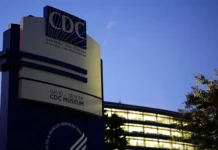
Infectious diseases that the U.S. had conquered decades ago — thanks to highly effective vaccines — are surging again, due to an uptick in vaccine avoidance.
So far this year, three people have died and 162 have been hospitalized in the nation’s worst measles outbreak in over 30 years. Public health departments are reporting alarming surges in old-fashioned diseases like mumps and rubella. Others, like diphtheria, pertussis (also called whooping cough) and polio, are on track to infect more Americans than they have in decades.
Since the COVID-19 pandemic, childhood immunization rates for key vaccines have declined across more than 30 U.S. states, fueled by misinformation and government policy. And, experts say, Health and Human Services Secretary Robert F. Kennedy, Jr., is a major culprit: in May, he replaced an expert, 17-member government vaccine advisory panel with eight lesser-credentialed individuals — including several known anti-vaxxers like himself.
With a new school year, and flu season, fast approaching, knowing which official vaccine schedule to follow — and whom to trust — will be critical for everyone in general — and the Black community in particular. That’s because Black Americans tend to have lower vaccination rates. Lack of health insurance and concerns about the medical profession’s racist history are major causes.
The Advisory Committee on Immunization Practices, which Kennedy overhauled, approved the current child and adolescent immunization schedule in November. But that list, previously published on the CDC’s website, has been removed and updated with other information as of May 29.
With that in mind, Word In Black has compiled a list of trusted, nonprofit health organizations that have current information about which vaccines are safe, when they should be taken and who should take them.
Current Immunization Information
For parents of young children, the American Academy of Physicians has a website, HealthyChildren.org, that is “committed to the physical, mental and social health and well-being of all infants, children, adolescents and young adults.” Its vaccine page includes an overview of vaccines for children, along with a more detailed schedule and a Q-and-A that addresses parents’ concerns.
For expectant parents, the American College of Obstetricians and Gynecologists has a vaccination page, the centerpiece of which is a video generally explaining the vaccines recommended during pregnancy, why they are safe and how they protect mother and child, both before and after birth But it also has more detailed information and recommendations for the flu vaccine and the Tdap vaccine — a combination jab that protects against tetanus, diphtheria, and whooping cough.
The American Academy of Family Physicians publishes a complete childhood vaccine schedule at its site, Familydoctor.org. updated as of May 2025. It also includes a convincing, pro-vaccine argument: “Following the right schedule ensures you or your child gets the best protection at the right time—whether it’s a routine childhood shot, a booster, or a vaccine needed later in life.
The website Guideline Central provides healthcare professionals with evidence-based clinical decision-support tools that are current, practical, and easily accessible. Its vaccine page lays out a complete schedule, along with updated and detailed Centers for Disease Control and Prevention information about who is recommended for each specific vaccine, and why.















